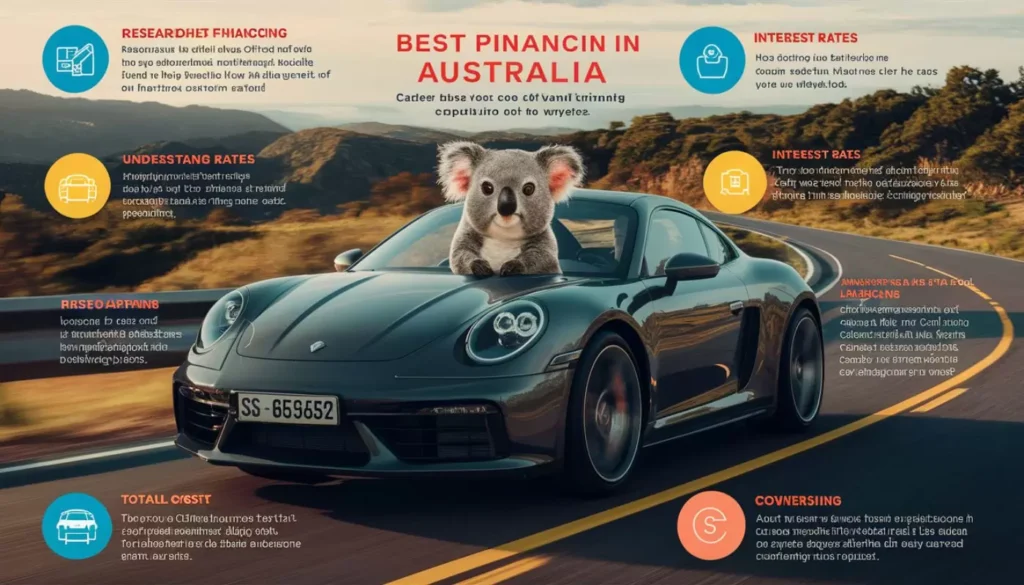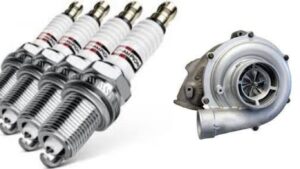Are you an American expat dreaming of cruising down the Great Ocean Road in your own set of wheels? You’re not alone! Many Americans find themselves puzzled when it comes to the best way to finance a car in Australia. Don’t worry – we’ve got you covered. This comprehensive guide will walk you through everything you need to know about car loans, finance options, and making that vehicle purchase Down Under.
Understanding the Australian Car Market
Before we dive into the nitty-gritty of car finance, let’s take a quick look at the Australian car market. It’s a whole new world compared to what you’re used to in the States!
Popular Brands and Models
Australians love their cars, and while you’ll see some familiar names, there are a few brands that dominate the market:
- Toyota
- Mazda
- Hyundai
- Ford
- Mitsubishi
These brands offer a mix of sedans, SUVs, and utes (that’s Aussie for pickup trucks). Hybrid and electric vehicles are gaining popularity too, especially in urban areas.
New vs. Used Cars
Just like in the US, you’ll have to decide between a new or used vehicle. Here’s a quick comparison:
| New Cars | Used Cars |
| Higher upfront cost | Lower initial expense |
| Latest features and technology | Potentially higher maintenance costs |
| Full warranty | Limited or no warranty |
| Better fuel efficiency (especially hybrid models) | More options within budget |
| Higher insurance premiums | Lower insurance costs |
Impact of Import Taxes
One thing that might shock you is the price of cars in Australia. Thanks to import taxes, vehicles can be significantly more expensive than what you’re used to. This makes finding the right financing even more crucial.
Car Financing Options in Australia

Now, let’s get to the heart of the matter – how to finance that Aussie dream ride. There are several options available, each with its pros and cons.
1. Dealership Finance
Many Aussies opt for dealership finance because it’s convenient. You can often drive away in your new car on the same day. However, be aware that interest rates might not be the most competitive.
Pros:
- Quick and easy
- Potential for negotiation on car price
- Special deals and promotions
Cons:
- Potentially higher interest rates
- Less flexibility in terms
2. Bank Loans
Good old bank loans are a popular choice for car finance in Australia. They offer competitive rates and terms, especially if you have a good relationship with your bank.
Pros:
- Competitive interest rates
- Flexible terms
- Potential for pre-approval
Cons:
- Stringent approval process
- May require collateral
3. Credit Unions
Credit unions in Australia, like in the US, often offer more personalized service and competitive rates.
Pros:
- Lower interest rates
- More flexible lending criteria
- Personalized service
Cons:
- Limited branch network
- May require membership
4. Online Lenders
The digital age has brought a new player to the car loan game – online lenders. They often offer quick approval and competitive rates.
Pros:
- Fast application and approval process
- Competitive rates
- Convenience
Cons:
- Less personal service
- Potentially higher fees
5. Novated Leases
Here’s something uniquely Australian – the novated lease. It’s a three-way agreement between you, your employer, and a finance company.
Pros:
- Potential tax benefits
- Includes running costs in the lease
- New car every few years
Cons:
- Tied to your employment
- Complicated structure
- Potential for negative equity
6. Unsecured Car Loans
An unsecured car loan might be a good option if you don’t want to use your car as collateral.
Pros:
- No risk of losing your car if you default
- Flexibility in how you use the funds
Cons:
- Higher interest rates
- Stricter approval criteria
7. Home Loan Redraw
If you own a home in Australia, you might consider using a home loan redraw facility to finance your car.
Pros:
- Lower interest rates
- Flexibility in repayments
Cons:
- Increases your mortgage
- Longer repayment term means more interest over time
8. Chattel Mortgage
For business owners, a chattel mortgage might be the way to go.
Pros:
- Potential tax benefits
- You own the vehicle from the start
Cons:
- Only available for business use
- Complex structure
9. Green Loans
If you’re eyeing an eco-friendly or hybrid vehicle, consider green loans.
Pros:
- Lower interest rates
- Support for environmentally friendly choices
Cons:
- Limited to specific vehicle types
- May have stricter approval criteria
Comparing Financing Methods
Now that we’ve covered the options, let’s compare them side by side:
| Financing Method | Interest Rates | Flexibility | Approval Process | Hidden Fees |
| Dealership Finance | Medium-High | Low | Fast | Potential for high fees |
| Bank Loans | Medium | Medium | Medium | Usually transparent |
| Credit Unions | Low-Medium | High | Medium | Usually low fees |
| Online Lenders | Medium | Medium | Fast | Vary widely |
| Novated Leases | Low | Low | Medium | Complex fee structure |
| Unsecured Car Loans | High | High | Medium | Usually transparent |
| Home Loan Redraw | Low | High | Fast | Usually low fees |
| Chattel Mortgage | Medium | Low | Medium | Complex fee structure |
| Green Loans | Low | Low | Medium | Usually low fees |
Best Practices for Car Financing in Australia

No matter which option you choose, follow these best practices to secure the best deal:
- Check your credit score: Your credit score plays a crucial role in determining your interest rate. In Australia, scores range from 0-1000 or 0-1200, depending on the credit reporting agency.
- Save for a larger down payment: The more you can put down, the less you’ll need to borrow, potentially leading to better terms and lower interest rates.
- Get pre-approved: Shop around and get pre-approved for a loan before hitting the dealerships. This gives you bargaining power and a clear budget.
- Negotiate the purchase price separately: Don’t let dealers bundle the car price with financing. Negotiate each separately to ensure you’re getting the best deal on both fronts.
- Read the fine print: Understanding all terms and conditions is crucial. Watch out for early repayment fees, balloon payments, and other hidden charges.
Challenges for American Expats
As an American in Australia, you’ll face some unique challenges when it comes to car finance:
- Establishing credit history: Your US credit history doesn’t automatically transfer. You’ll need to build a credit history in Australia from scratch.
- Dealing with foreign income: If you’re still earning in USD, lenders might view your income as less stable due to exchange rate fluctuations.
- Visa status considerations: Your visa status can affect your loan eligibility and terms. Permanent residents usually have an easier time than those on temporary visas.
The key is to start building your Australian credit history as soon as you arrive. Even small steps like getting a local credit card can make a big difference when it’s time to apply for a car loan. Sarah Thompson, Financial Advisor for Expats
Case Study: An American’s Car Buying Journey in Australia

Let’s look at a real-life example:
John, a software engineer from San Francisco, moved to Sydney for work. He needed a car to commute to his office in the suburbs. Here’s how he navigated the process:
- Opened an Australian bank account and got a credit card to start building his credit history.
- Saved for six months to build a 20% down payment.
- Researched various lenders and got pre-approved for a loan.
- Shopped around dealerships, armed with his pre-approval.
- Negotiated the car price separately from financing.
- Ultimately chose a bank loan with a competitive interest rate and flexible terms.
John’s approach of patience, research, and separate negotiations helped him secure a great deal on both the car and the financing.
Alternative Options
If traditional car finance doesn’t appeal to you, consider these alternatives:
- Car sharing services: Companies like GoGet offer convenient short-term car rentals.
- Peer-to-peer car rentals: Platforms like Car Next Door allow you to rent cars directly from owners.
- Public transportation: In major cities like Sydney and Melbourne, you might find you don’t need a car at all!
Conclusion
Financing a car in Australia as an American expat can seem daunting, but with the right knowledge and approach, you can secure a great deal. Remember to:
- Research all your options
- Build your Australian credit history
- Save for a substantial down payment
- Negotiate wisely
- Read all terms and conditions carefully
Whether you opt for a traditional car loan, an unsecured car loan, or a uniquely Australian option like a novated lease, the key is to make an informed decision that fits your financial situation and goals.
FAQs
- Can I use my US credit history in Australia?
Unfortunately, no. You’ll need to build your Australian credit history from scratch.
- What’s the average interest rate for car loans in Australia?
As of 2024, average rates range from 6% to 10%, depending on the loan type and your credit score.
- How long does the car financing process typically take?
It can take anywhere from a few hours (for dealership finance) to a few days (for bank loans).
- Are there any tax benefits to financing a car in Australia?
If you use the car for business purposes, you may be able to claim deductions. Novated leases also offer potential tax benefits.
- Can I finance a car if I’m on a temporary visa?
Yes, but you may face stricter criteria and higher interest rates. Some lenders specialize in loans for temporary residents.
Remember, the best way to finance a car in Australia is the one that fits your unique situation. Don’t be afraid to ask questions, seek professional advice, and take your time to make the right decision. Happy car hunting!

Marathi author Anju Mary has made a mark in the literary world with her innovative storytelling and deep passion for reading. Her unique narrative style and creative approach offer readers a distinctive and enriching experience, solidifying her reputation as a prominent writer.











